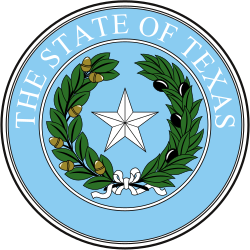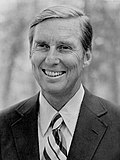| |||||||||||||||||
| |||||||||||||||||
Bentsen: 50–60% 60–70% 70–80% 80–90% >90% Bush: 50–60% 60–70% | |||||||||||||||||
| |||||||||||||||||
| Elections in Texas |
|---|
 |
The 1970 United States Senate election in Texas was held on November 3, 1970. Incumbent Democratic U.S. Senator Ralph Yarborough was defeated by former U.S. Representative Lloyd Bentsen in the Democratic primary. Bentsen then defeated Republican U.S. Representative and future president George H. W. Bush in the general election. When Bush was running for president in 1988, his Democratic opponent, Massachusetts Governor Michael Dukakis, selected Bentsen as his vice presidential running mate.




